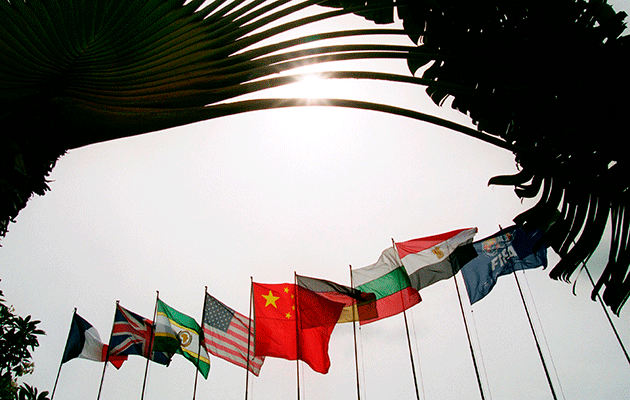Transparency International has published research which shows that the vast majority of FIFA member federations refuse to reveal how they spend their money.
A total of 168 of the 209 FIFA members fail to make financial reports publicly available, according to the anti-corrution organisation.
“The risk of corruption at too many football associations around the world is high,” TI managing director Cobus de Swardt said in a statement. “This problem is made worse by the lack of information such as audited financial statements by many associations.”
The research follows criminal investigations of FIFA and senior officials launched by federal prosecutors in the United States and Switzerland.
“This lack of transparency and accountability is unfortunately not limited to FIFA’s headquarters,” the document said. “Any reform of FIFA will have to make that a priority.”
Only 14 out of FIFA’s 209 football associations – Canada, Denmark, England, Hungary, Iceland, Italy, Japan, Latvia, New Zealand, Northern Ireland, Norway, Portugal, the Republic of Ireland and Sweden – publish the minimum amount of information necessary to let people know what they do, how they spend their money and what values they believe in.
More than one in five of the 209 national soccer bodies had no website to explain their work, and 178 did not publish an annual activity report.
Only two of FIFA’s six continental confederations – European body UEFA and Africa’s CAF – revealed their annual accounts, the not-for-profit group stated in its 16-page document.
Each of FIFA’s 209 members received at least $2.05 million from central funds during the four-year cycle tied to 2014 World Cup income. The six confederations shared $102 million from FIFA in that time.
“Other than a partial accounting on the FIFA web site, there is no clear way to track what the (members) did with all that money,” the report said.
“At Transparency International we believe fans have a right to know how the money FAs generate through their interest in football is spent, as does the general public because governments also invest taxpayers’ money in football at the national level. We believe greater transparency lessens the corruption risks.”
TI has recemmended four steps to be taken as a minimum to being transparent: Publishing audited financial accounts, an annual activity report, a code of conduct and organisational statutes.







